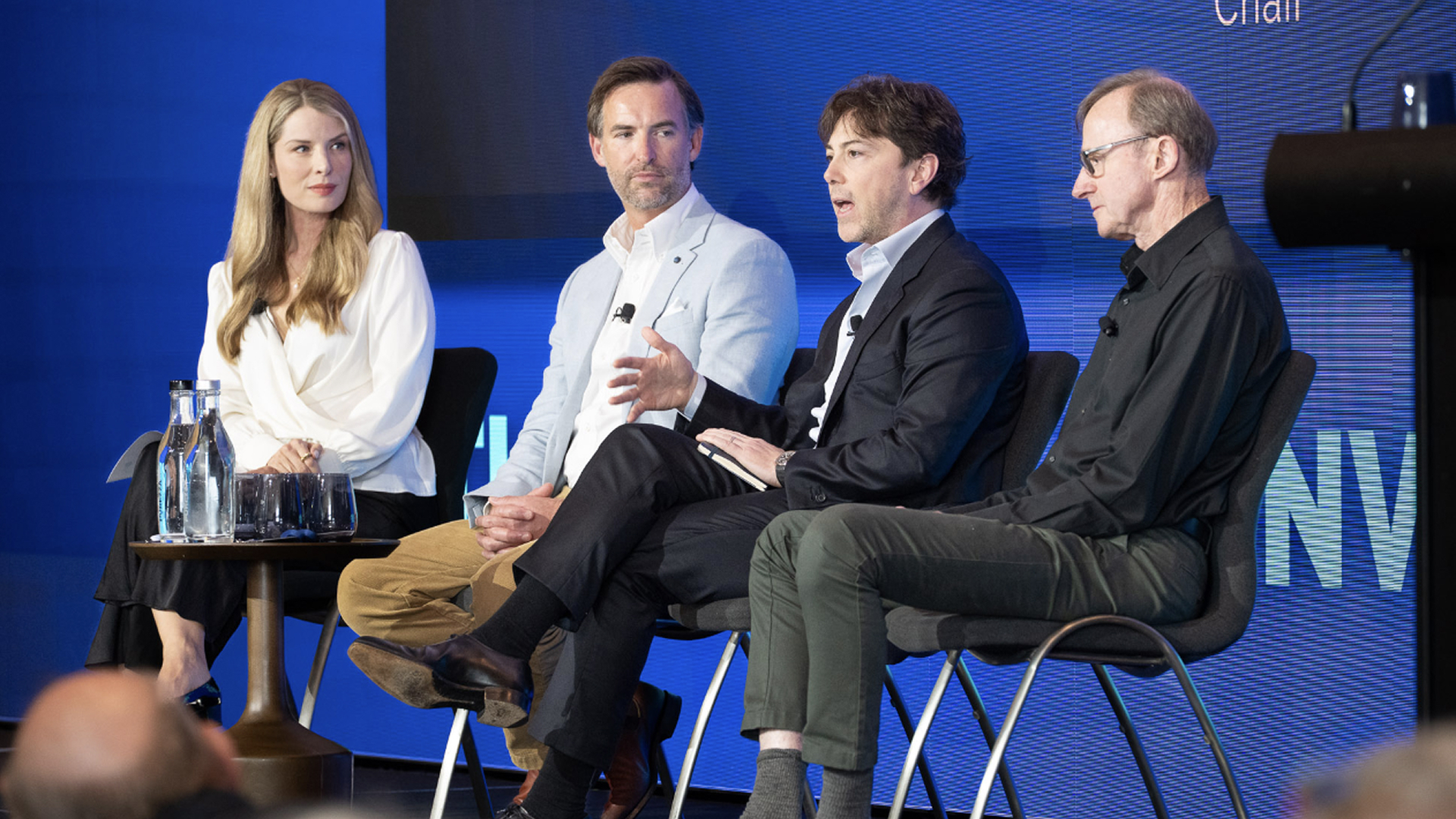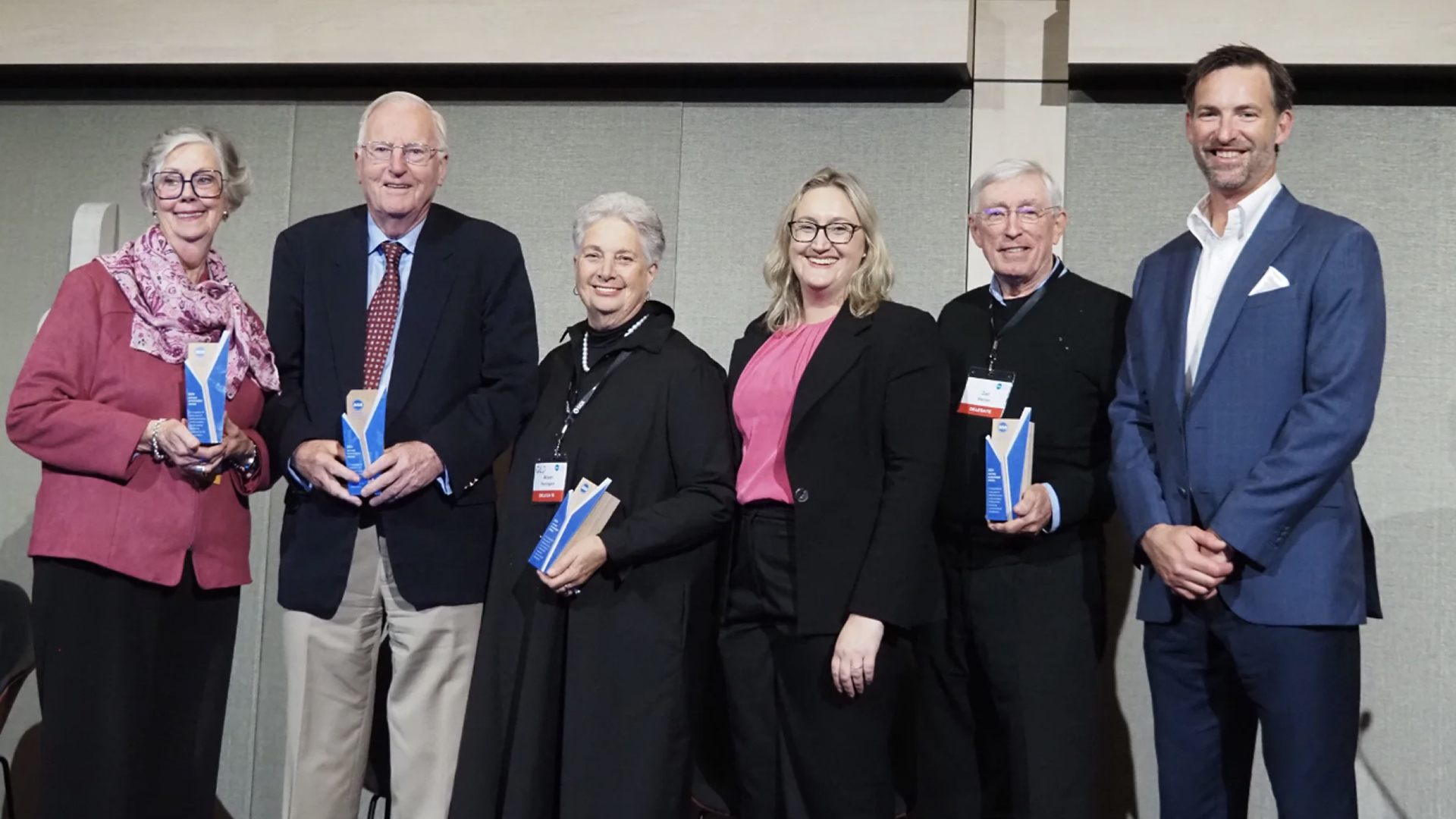Meet Steven: Hunting for great companies using data and peer-led wisdom
I’m still pretty new to investing - learning the ropes, asking questions, and trying not to trip over the jargon. To make sense of it all, I need something to anchor my thinking; a phrase, a mental shortcut, that helps the puzzle pieces click.
When I spoke to Steven Mabb, one saying popped into my head: look both ways. It’s not as pithy or profound as one of those classic Buffett-isms, but it stuck, and it fits.
Steven, a former shoe salesman who sold his business to a listed U.S. company, has been investing full-time since 2017. And he brings this dual perspective, balancing his business insights and experience to his investor journey and approach.
His former life as a business owner means he is particularly sensitive (diplomatic) to marketing spin. He cuts through the noise to focus on what really matters: culture, leadership, incentives, and capital allocation. His strategy is slow, steady, and patient.
But what really sets him apart isn’t just the hours he puts in or his eye for quality businesses. It occurred to me that Steven was the first investor I had spoken to who really plugged into an investor hive mind.
He approaches investing with the rigour of a professional and the humility of someone who understands the limits of going it alone. A voracious reader and active community contributor, he draws insights from software tools, investor groups, and direct conversations with management. His business background gives him a distinct edge; he knows what great companies look like from the inside out.
In this profile, we explore how Steven blends his personal temperament and experiences with collective wisdom to navigate markets with clarity and care.
I hope you enjoy this instalment of Meet the Investor.

Profile
- Name: Steven Mabb
- Job: Former shoe salesman, now Investor and Advisory Board Member
- Age: 49
- Years spent investing: Since 2017 in a dedicated way, after selling our shoe business to a listed U.S. company.
- Biggest investment: A retail property on the Sunshine Coast, but my listed equities portfolio is the biggest asset class.
- Secret (or not so secret) talent: Voracious reader and a cloner of proven giants in investing (Buffett&Munger, Marks, Greenblatt, Sleep&Zakaria, Annie Duke, Morgan Housel, Edward Chancellor, Taleb, Shiller, Ed Thorpe, Monish Prabrai etc.)
-
Guilty reading or viewing pleasure: AFL and great comedies like Arrested Development and the Smartless podcast.
Can you share how you got started in investing and what your first investment was?
My first investment was an Aussie small-cap “hot tip” from a guy in our office when I was in my early thirties and knew nothing about the share market. Needless to say, it went very badly, and I lost the $5,000 I invested when it went bust a few months later. Great lesson, though, to not listen to tips and know what you’re investing in.
How would you describe your strategy and your investment goals?
I have worked hard to learn as much as I can over the past eight years or so about listed equities and other assets like bonds (which I don’t invest in) and private equity.
Tried lots of things, made tonnes of mistakes, read and listened to bucketloads of investing information and over that time I figured out what kind of investing suits my personality and that I can stick to long term.
My strategy is to own a small number of excellent businesses that have solid tailwinds and a history of strong EPS growth, low debt, plus trustworthy management with lots of skin in the game. Then to be very patient with entry points, buying at the low end of multiple history for that business and also adding to these positions when short-term sentiment offers a good opportunity.
Nothing unique about that, but many people can’t or won’t invest that way, which is why it seems to work. I also complement my listed equities with smaller positions in an excellent private equity fund and an AI venture capital fund, which are outside my circle of competence and I, in turn, am happy to outsource to proven managers. Plus, a small position in bitcoin that I see as an asymmetric bet.
I also have an investing partner who is in a similar life position to me, and we discuss all investing decisions together before making them and challenge each other's thinking. We have similar portfolios but not identical ones, and both bring different business backgrounds and skills to assessing our investments and progress.
There are two groups that I have learned a lot from and are vital to my investment results. The first one is Teaminvest, which is a membership group of about 600 serious investors across Australia, who meet monthly in each capital city and utilise proprietary software to assess companies and valuations. It isn’t cheap, but if you are committed and have a decent size portfolio, it’s an outstanding group of people, with significant investing knowledge, who have beaten the market consistently for many years.
The second group is the Australian Shareholders Association, where I am fortunate to be the current Chair of the Board. This is a volunteer role, and the group is mostly run by volunteers. Members have a shared interest in learning about the Aussie sharemarket and also monitoring listed companies from a regular shareholder's point of view and advocating for them with regulators. Again, there are lots of experienced investors in this group I have learned from, and I have also developed deeper skills around governance and remuneration issues, which at times can negatively affect outcomes for investors if not well understood.
The goal of all this is to provide strong annual returns above what I could get just holding the indexes, which will ensure I am free to choose what I do with most of my time, rather than working full-time.

Can you share your top 5 holdings in % terms and why you hold these positions?
1. A retail property on the Sunshine Coast - 25%
We manage it ourselves, often helping our tenants with free business advice when needed, too. It’s compounded at a net total return of 12% p.a. for 10 years now and provides a reliable monthly cash flow to cover some of our expenses
2. Samuel Terry Asset Management - 9%
Next biggest position is our only public company-managed fund. Over 22 years, Fred Woolard and his small team have doubled the annual All Ords total return, and do it all very quietly, investing in companies I wouldn't find or understand myself.
3. Mader Group (ASX:MAD) - 7%
Single biggest listed company right now is equipment maintenance business, Mader Group. Founder Luke Mader, who is now the Chair and still a huge shareholder, has a team of over 3,000 skilled mechanics and technicians that can quickly get to around 70% of Australia's mine sites to repair vital equipment that is no longer under warranty. And they usually do it faster and cheaper than the original equipment manufacturers. Unlike other mining services companies though, it's "asset light" as it's mostly people producing the revenue rather than capital-intensive equipment. They have also expanded into North America in recent years and the early signs are promising. It's an easy business to understand, they have an excellent culture and have been delivering excellent compound growth for over 20 years as an unlisted and now listed company.
4. Wise - 6%
Based in London and about to list on the Nasdaq. For those who travel or transfer FX, you may know them as they offer a brilliant service that exchanges currency for about 75% less than what most banks and credit cards charge. They have banking licences in over 70 countries now, including Australia. Again, happy customers and staff, it’s founder-led, and they have adopted the Costco model of sharing their growth with their customers by consistently lowering their fees over the years. Some of the biggest banks in the world, like Morgan Stanley and Standard Chartered, are now giving up doing their own currency exchange and instead using the Wise platform, as they can’t really compete. I see this one as a long-term compounder if they can keep taking market share like they have been for the last 10 years.
5. PWR Holdings (ASX: PWH) - 6%
Founder Kees Weel and his team have built the best, bespoke cooling systems in the world for motor sports from their facility on the Gold Coast. They supply every Formula 1 team and many of the NASCAR and Supercar teams as well. This is a solid business but it’s maturing, so they have diversified into Aerospace and Defence projects recently, where they can again customise cooling systems for these programs that won’t be mass production but are critical to get right. They had been on my watchlist for some time, and when they fell out of favour last year due to what is hopefully a temporary blip in EPS growth (as they invested for the future in a much bigger factory), I added to my portfolio.
What investment is on your watchlist?
Top of my watchlist are TechnologyOne and in the U.S., it’s Costco, Berkshire and Amazon. All are a bit too expensive for me right now, but have amazing and hopefully enduring corporate cultures with genuine partner mentalities, and in Berkshire and Amazon's case, lots of dry powder in a crisis. So, if we get some short-term market or company-specific worries that push the multiples down, I’d happily add any of these even though they are big, mature companies now.
On that point, I always keep at least 5% cash in high-interest savings accounts, so that I can pounce on any rare opportunities that might come up each reporting season.
What was your worst investment and what has been your best?
My biggest loser has been Paradigm (ASX: PAR), which is an Aussie biotech that I bought quite a few years ago, before I had cemented my strategy. It is promising big improvements for arthritis of the knees, which is a huge and expensive problem worldwide. I still hold it today though, as the thesis still looks like it could play out…leadership have just badly managed market communications and funding. That said, I would not buy an unprofitable biotech company again. It was an obvious “stupidity”, to quote the great Charlie Munger.
My biggest winner has been Adelaide-based Codan (ASX: CDA), who do metal detection and communications equipment globally. It’s a great business, but I did sell down recently as the valuation has gotten very stretched in my view, and I switched this capital to a couple of other positions that are offering better projected returns.
Can you share a personal passion or ambition you have for the future?
I am hoping to build a much better database at ASA of historical remuneration and Board composition for the All Ords companies, which could then be used to assess long-term outcomes for shareholders on these issues. For example, is a smaller Board with lots of skin in the game better than one with lots of Independence? Or is an incentive plan better with share price as the key metric, or is EPS growth and return on capital more likely to deliver results?
There are lots of “opinions” on this stuff from various industry players, but not much hard data, so ASA can hopefully play a role here with the companies they engage with every year. If done well, this kind of positive pressure backed by data could help all Investors over the long term.
If you are interested in sharing your investing journey, please send me a confidential enquiry by clicking the contact button at the bottom of this wire or by emailing team@livewiremarkets.com.
(All guests receive a limited edition Livewire cap)
4 stocks mentioned

.jpg)
.jpg)